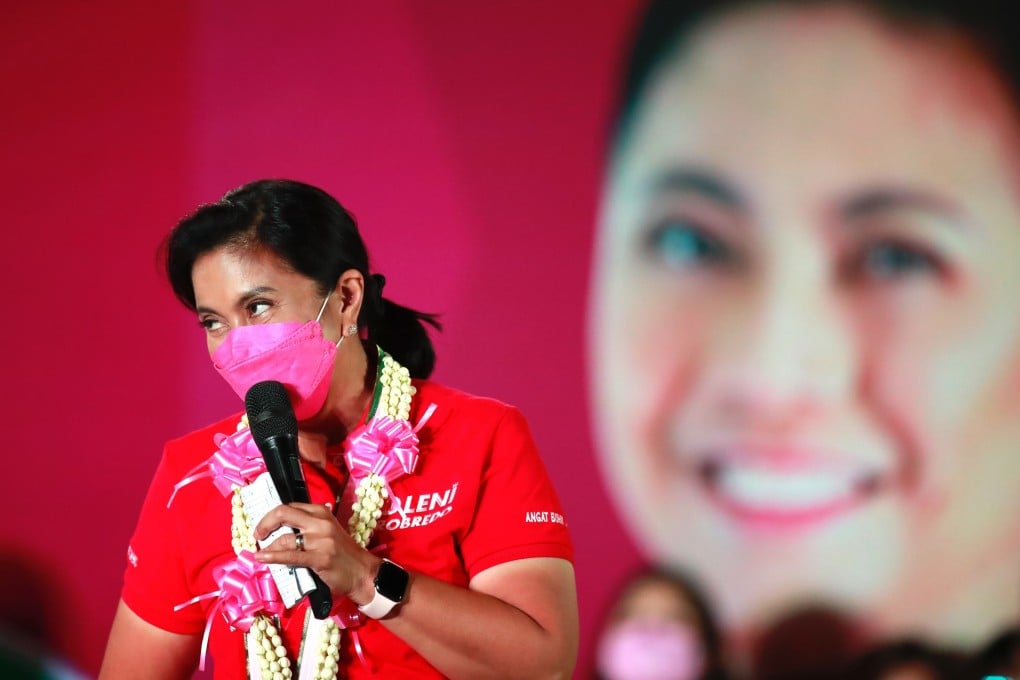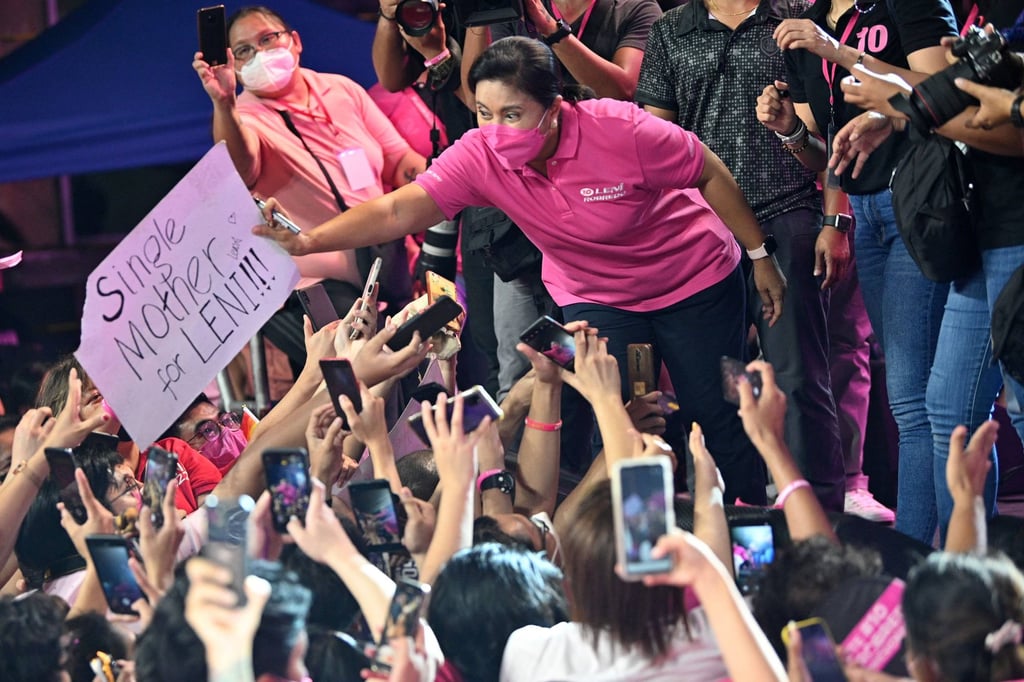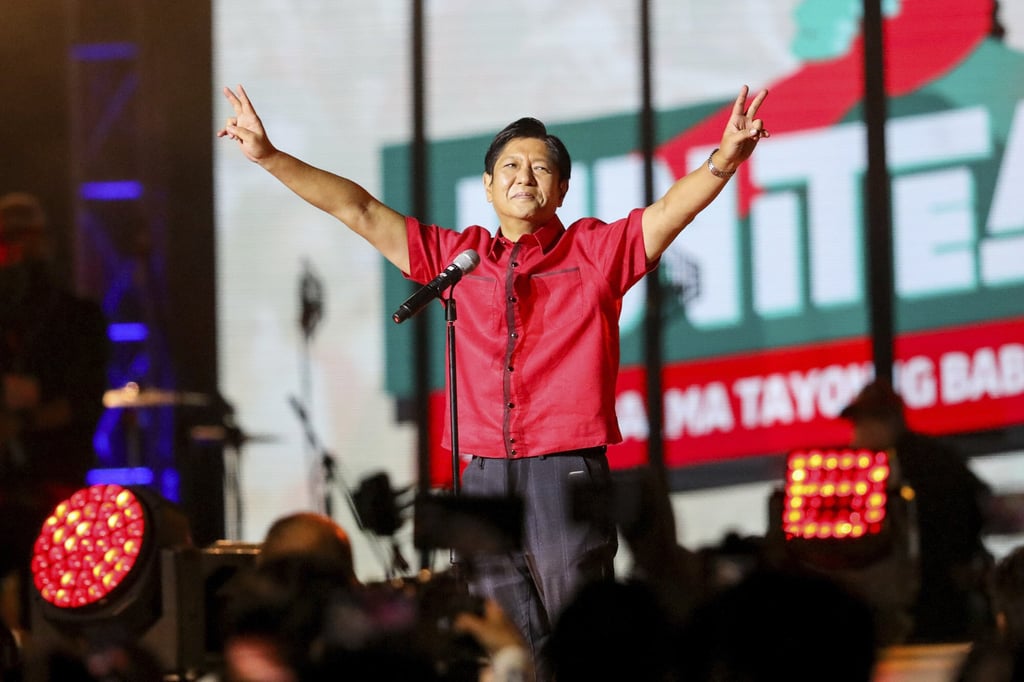Philippine presidential election heats up as Marcos and Duterte lose ground to Robredo in key battleground of Davao
- In surprise move, two Davao governors and a congressman signal backing for Leni Robredo – who until now has been trailing the dictator’s son in opinion polls
- It is an upset for Marcos, whose running mate Sara Duterte is mayor of Davao City. Is it a turning point for Robredo, who has a history of beating Marcos in last-gasp votes?

The race for the Philippine presidency was blown wide open on Thursday when a string of politicians in the key island of Mindanao – home to a quarter of the country’s 65.7 million voters – unexpectedly swung behind Leni Robredo.
Robredo, currently the country’s vice-president, has been trailing her rival Ferdinand “Bongbong” Marcos Jnr, the son of the former dictator, in opinion polls and until now many pundits had assumed the Marcos camp could count on high levels of support in Mindanao – and particularly its Davao provinces.
But those expectations were upended when the governors of Davao North and Davao South – Edwin Jubahib and Douglas Cagas IV – both signalled their backing for Robredo, who was campaigning in the province on Thursday ahead of the May 9 general election.

And the blow for the Marcos camp was compounded when the North Davao Congressman Pantaleon Alvarez announced his Partido Reporma would no longer field its own presidential candidate and would switch its support to Robredo instead. Senator Panfilo Lacson, who had been the party’s candidate, will now run as an independent candidate.
The news is likely to cause deep consternation in the Marcos camp, which will be scratching its head over the apparent loss of support. Marcos’ running mate is Davao City mayor Sara Duterte, whose father Rodrigo – the incumbent president – also rose to power on the back of strong support in Davao. The president’s PDP-Laban party this week officially endorsed Marcos.
The developments will fuel speculation that Robredo can pull off a similar feat to 2016, when she beat Marcos Jnr to the vice-presidency despite having trailed him in the polls for long periods of campaigning.

The latest opinion poll, by Pulse Asia of 2,400 respondents taken from February 18 to 23, showed Marcos leading Robredo – his nearest rival – by 60 per cent to 15 per cent.